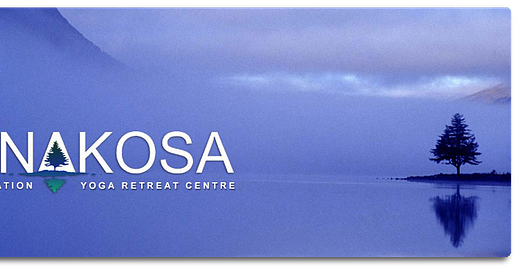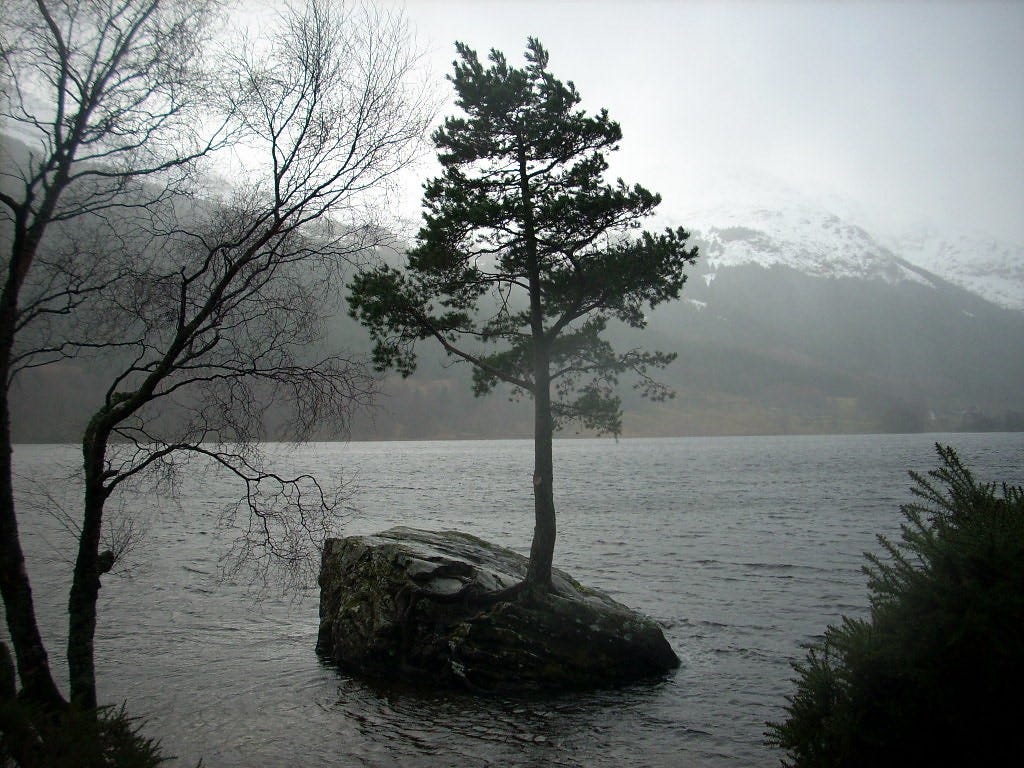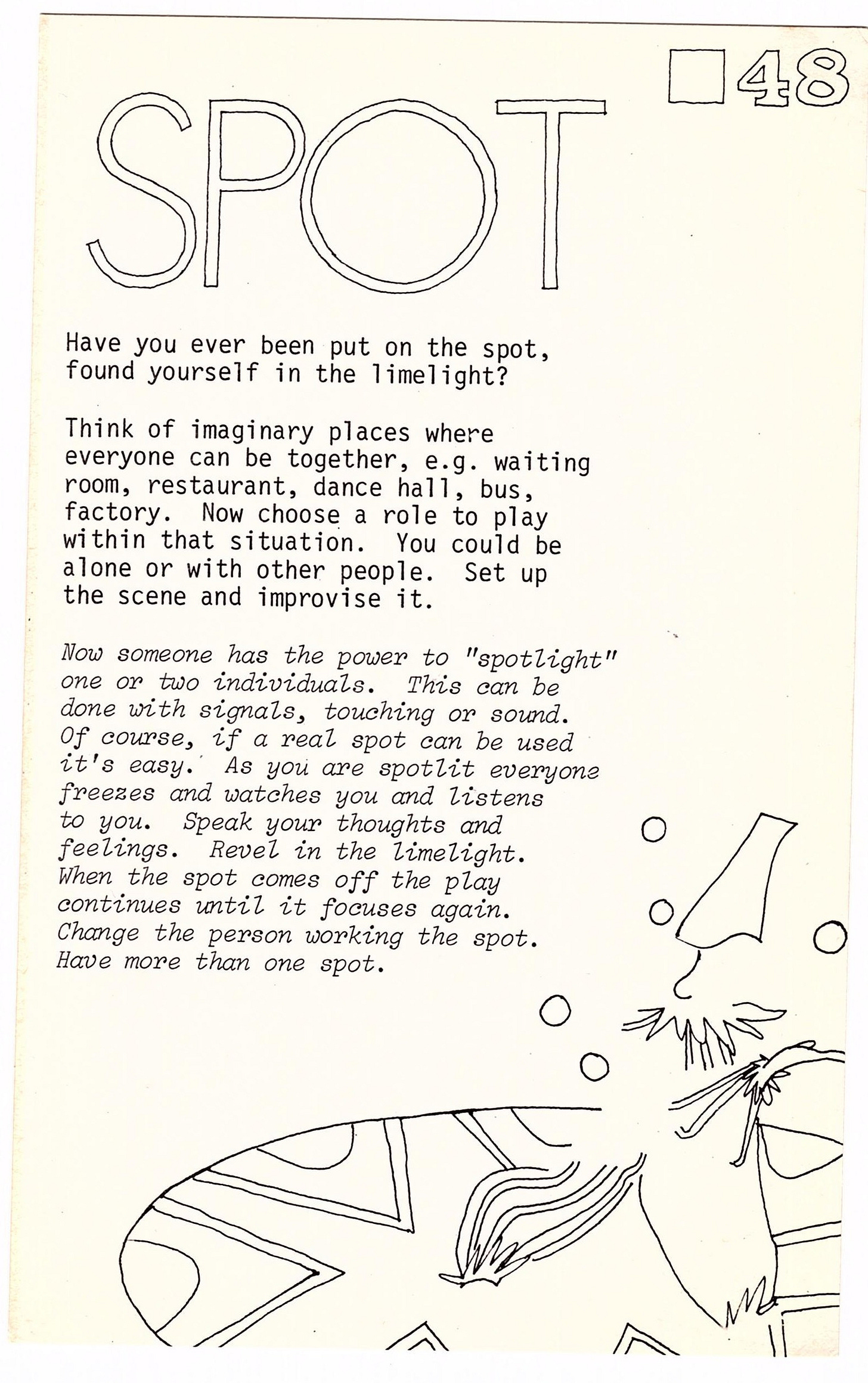The Dhanakosa Buddhist Retreat Centre works under the auspices of the Triratna Buddhist Order. The centre is beautifully situated in the southern part of the Scottish highlands, on the shores of Loch Voil in the Loch Lomond and Trossachs National Park – a setting that provides ideal conditions for retreats.
Dhanakosa runs many different courses and retreats, catering for all levels of experience, from those not familiar with meditation and Buddhist practices to those who are fully committed. Larry Butler’s expressive writing and Tai Chi course is an introductory retreat. Retreat is a time to explore ourselves, and our lives in a new way. All introductory retreats combine the practice of meditation with other activities. They provide supportive conditions for this exploration and a deepening of our connections with ourselves and others.
For several years now, Larry has run this week-long retreat in October. The description that follows is based on the one I (Robin Lloyd-Jones) attended in October 2017. This is a very subjective account. I have picked out only the happenings which made a particular impact on me. Another person’s account of this week might be very different. The group consisted of 22 men and women of all ages. That year the title of the retreat was ‘Waving Hands Like Clouds: Tai Chi, Poetry and Meditation’. The course handout described it as:
‘A retreat expanding our horizons through language: opening to the wisdom of the body and integrating our heart and head. Each move in Tai Chi is a metaphor. The structural forms provide an inspiring backdrop to the creation of rhythmic patterns with words. Tai Chi, writing and poetry have much in common: form, structure, sensitivity and a striving towards essence. Clouds, like thoughts, come and go. Inspired by the surrounding mountains, lochs and sky, we will combine writing with movement and mindfulness for our own wellbeing, and for all living beings everywhere.’
The programme each day started with Tai Chi down by the lochside. There was just enough light to be aware of the mist hanging on the forested slopes, and the stillness of the loch. We began with warm-up exercises and a general loosening of the body. Tai Chi means a state of natural balance and harmony. The Tai Chi that Larry teaches on this retreat is a simple, easy-to-learn form, with gentle, slow, graceful movements and controlled breathing, based on the belief that softness is stronger than hardness and flexibility overcomes strength. The movements have names like Painting the Rainbow, Behold the Moon, Splitting the Clouds, White Crane Spreads Wings, Playing with Waves. ‘Let your legs follow your breath’, Larry would say. ’And your arms follow your legs, flowing like silk banners.’ I enjoyed these sessions. Not only did I feel my body becoming more stretched and supple, but I felt connected to the earth and the sky, their energy flowing through me. Not only is tension released, but the cause of that tension, the tense mind, is also released. This is what sets Tai Chi apart from purely physical exercises.
After the Tai Chi session, the group assembled in the shrine room for meditation. The shrine room at Dhanakosa has stacks of mats and cushions so that those who want to can sit in various meditation positions. For those, who preferred simply to sit (like me), chairs were provided. A figure of the Buddha sat one end of the hall on a raised platform. A slight odour of incense filled the air. The meditation was guided by a Buddhist by the name of Jayaraja. In the Triratna Order, the members (who can be any sex), wear ordinary clothes, live at home or in small communities and mostly have day-time jobs. When they are ordained they are given a Buddhist name. Jayaraja emphasised the importance of the breath in establishing a mental calm. Breathe in – a wave rippling up the beach; breathe out – the wave returning down the beach. Breathe in – receiving the world into your body; breathe out – the world receiving you. You and the world are one; you and nature are one. Follow the breath; surfing on the breath, neither clinging to or rejecting thoughts.
When the turbulence of the mind had been calmed, we moved on to the metta bhavana, the cultivation of loving kindness. Our thoughts were directed to loving kindness towards ourselves, then towards a friend, then a person we felt neutral about, then someone with whom we have a difficult relationship . . . . The meditation concludes by extending loving kindness in all directions to all living beings.
Breakfasts, like all meals at Dhanakosa were vegan. There was a cook, assisted by teams of retreatants who prepared the vegetables, washed up, laid the tables, etc. This was as much part of the course as anything else – a time for bonding and being part of the community. Everyone had household tasks too – emptying bins, hoovering floors, etc. My task was cleaning the toilets, a job that was done as part of the communal effort and done with love.
Between breakfast and lunch were writing activities. Larry stressed that this course was not about producing literary masterpieces. It was about exploring ourselves, and our lives, and that all writing to this end is good writing. ‘Whatever you right is right. You can’t write the wrong way.’ Every day Larry gave us two or three prompts designed to help us explore ourselves, to expand our idea of who we were, to see potential for personal growth and development. Mostly we were in small groups so that there was time for everyone to share what they had written, and time for everyone to respond to each other.
We had been asked to bring with us something from home that had meaning for us. One person brought a packet of soil from his allotment – a place of contentment and peace. Another person a dragonfly made of felt – a beautiful creature which had once been something else. Each of us spoke about what we had brought, and then wrote about it.
Some of the prompts Larry gave us were: ‘A safe place I knew as a child’; ‘I will never forget ….’; ‘A letter to your body’; Who or what is your muse?’ (where do you get your inspiration and motivation from?); ‘A project I would like to do’ (something you’ve always meant to do, but never got round to). For this prompt you write two letters. One from your inner critic telling you all the reasons you cannot or should not do it. And then a reply to this from your more positive side. Another prompt was ‘When I yield in my life’ (receiving something without either running away or fighting it, accepting it). We also wrote outdoors, wandering the grounds of Dhanakosa until something attracted our attention or found us.
On the topic of writing and walking, the poet and teacher Manjusvara, who has been a big influence on Larry, had this to say:
‘The slower the pace the more there is to see. Even a gravel path beside a car park holds an infinity of textures and an infinite number of responses. When places become dull, we have to make them fascinating again. As writers, we should aim to invest our town or city with the same exoticness that someone who has never been there before would give it.’ (Writing Your Way).
After lunch there was time to ourselves, time for reflection or perhaps to expand on things written that morning. Then a second writing workshop, followed by supper, another Tai Chi session and the final meditation of the day.
At various times throughout the day, Larry would introduce little games, dances and fun activities designed to break down any feelings of self-consciousness, any barriers to expressing our real selves, any remaining reservations about each other. I remember in one of these activities I was paired up with someone I had known before the retreat, but had never got beyond a formal kind of relationship with. The activity ended with us back to back, rubbing bottoms together. After that we were so much warmer and more natural with each other.
The evening meditation mostly took the form of chanting. The rhythmic repetition, over and over, was calming and took the mind to places seldom visited:
Namo Buddhaya (I honour the infinite awakening)
Namo Dharmaya (I honour the way to awakening)
Namo Sanghaya (I honour the wayfarers)
Namo Nama (I honour, I honour …)
Om (… the ultimate in the universe …)
Ah (… the process of transformation …)
Hum (… the ultimate to be realised in me)
Each day the period of silence was extended, starting with silence from after supper to after breakfast the next day, to a full 24-hour silence on Wednesday/Thursday. We all found that, although speaking was discouraged, communication continued, sometimes at an even deeper level – looking into each other’s eyes, being more aware of body language, the smile. Deeper thoughts flowed uninterrupted, which later became writing.
This account has been hardly more than an outline. I have not done justice to the element of play and fun that Larry introduced into nearly all that we did; nor to the energy that flowed from him into us. Nor to the constant way he worked to knit us into a caring, interconnected community, who genuinely wanted to see each other develop and grow, and whose collective energy and goodwill produced writing straight from the heart that none of us could have achieved on our own.
Larry planned and facilitated a programme where the physical and the mental came together to produce conditions where the whole of you was writing. He fostered a sense of community and trust in each other. Bishop Tutu’s oft-quoted phrase ’Ubuntu’ – ‘I am because we are’ – was very much in evidence on this course. Meditating as a group is a rewarding experience; doing Tai Chi in a group generates an energy that is not present when you do it alone. And people found themselves writing and sharing things they thought were unsayable, things they could not have said to each other until this point in their lives.
This was Robin’s take on his first Dhanakosa retreat. If you’ve been to Dhanakosa, what was it like for you the first time. ‘The first time . . .’ is one of my favourite writing prompts. Not mentioned is Robin’s experience of being rescued after waiting alone for 10 hours on the mountain with a broken leg. This will be the next post.
GamesGames: SPOT - when have you been in a tight spot? Tell your story.







